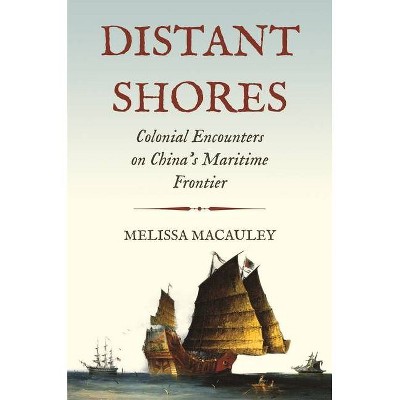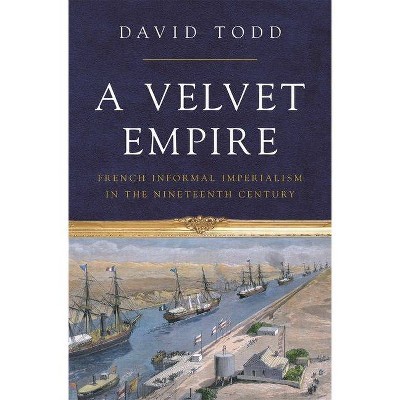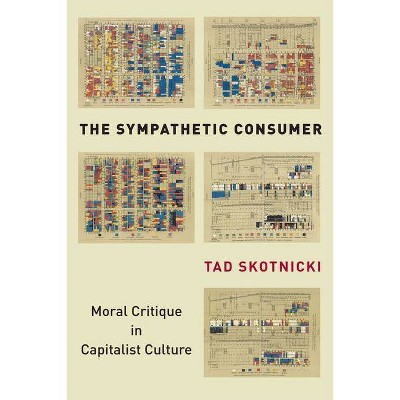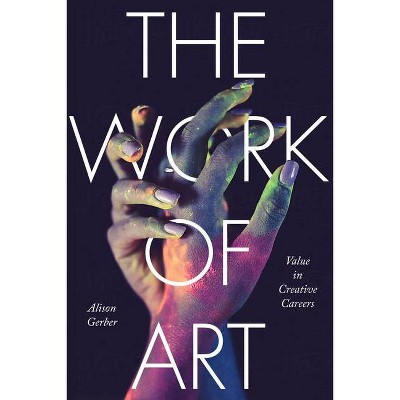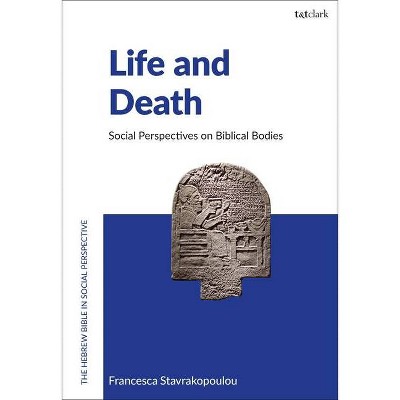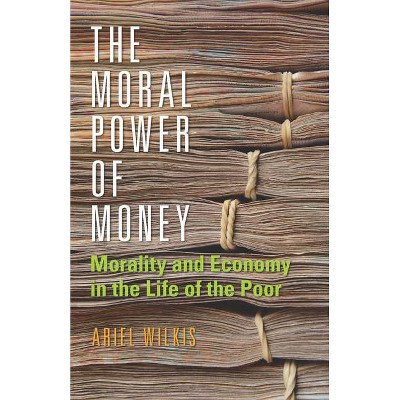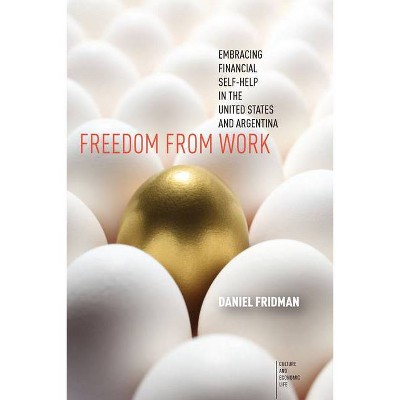The Promise and Peril of Credit - (Histories of Economic Life) by Francesca Trivellato (Hardcover)
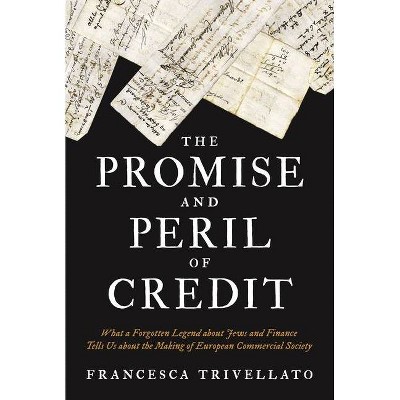
Similar Products
Products of same category from the store
AllProduct info
<p/><br></br><p><b> About the Book </b></p></br></br>The Promise and Peril of Credit takes an incisive look at pivotal episodes in the West's centuries-long struggle to define the place of private finance in the social and political order. It does so through the lens of a persistent legend about Jews and money that reflected the anxieties surrounding the rise of impersonal credit markets. By the close of the Middle Ages, new and sophisticated credit instruments made it easier for European merchants to move funds across the globe. Bills of exchange were by far the most arcane of these financial innovations. Intangible and written in a cryptic language, they fueled world trade but also lured naive investors into risky businesses. Francesca Trivellato recounts how the invention of these abstruse credit contracts was falsely attributed to Jews, and how this story gave voice to deep-seated fears about the unseen perils of the new paper economy. She locates the legend's earliest version in a seventeenth-century handbook on maritime law and traces its legacy all the way to the work of the founders of modern social theory--from Marx to Weber and Sombart. Deftly weaving together economic, legal, social, cultural, and intellectual history, Trivellato vividly describes how Christian writers drew on the story to define and redefine what constituted the proper boundaries of credit in a modern world increasingly dominated by finance.<p/><br></br><p><b> Book Synopsis </b></p></br></br><p><b>How an antisemitic legend gave voice to widespread fears surrounding the expansion of private credit in Western capitalism</b> <p/><i>The Promise and Peril of Credit</i> takes an incisive look at pivotal episodes in the West's centuries-long struggle to define the place of private finance in the social and political order. It does so through the lens of a persistent legend about Jews and money that reflected the anxieties surrounding the rise of impersonal credit markets. <p/>By the close of the Middle Ages, new and sophisticated credit instruments made it easier for European merchants to move funds across the globe. Bills of exchange were by far the most arcane of these financial innovations. Intangible and written in a cryptic language, they fueled world trade but also lured naive investors into risky businesses. Francesca Trivellato recounts how the invention of these abstruse credit contracts was falsely attributed to Jews, and how this story gave voice to deep-seated fears about the unseen perils of the new paper economy. She locates the legend's earliest version in a seventeenth-century handbook on maritime law and traces its legacy all the way to the work of the founders of modern social theory--from Marx to Weber and Sombart. <p/>Deftly weaving together economic, legal, social, cultural, and intellectual history, Trivellato vividly describes how Christian writers drew on the story to define and redefine what constituted the proper boundaries of credit in a modern world increasingly dominated by finance.</p><p/><br></br><p><b> Review Quotes </b></p></br></br><br>Winner of the Jordan Schnitzer Book Award in Medieval and Early Modern Jewish History and Culture, Association for Jewish Studies<br><br>Trivellato's study makes an important contribution to both Jewish Studies and the wider history of economic thought, the bridging of which is an express purpose of the work. . . . The book is an important contribution to the history of Jews in economic thought and to the study of the relationship between law and language.<b>---Joshua Teplitsky, <i>Antisemitism Studies</i></b><br><br>Astonishing book.<b>---Germano Maifreda, <i>QUEST- Issues in Contemporary Jewish History</i></b><br><br>The book is highly relevant today and truly inspiring.<b>---Tom Tölle, <i>H-Soz-u-Kult</i></b><br><br>The valuable study by Francesca Trivellato, who transcends national and linguistic boundaries . . . shows how a study of "international" anti-Semitism can be done by focusing on one particular example such as a legend on Jewish economic activity and its subsequent spread throughout Europe.<b>---Oliver Schulz, <i>QUEST- Issues in Contemporary Jewish History</i></b><br><br>[An] important book deserving the widest possible readership across disciplines. . . . [Its] subject is nothing less than the making of the modern world.<b>---Robert Fredona, <i>Business History Review</i></b><br><br>Moving deftly through economic history, law, and the annals of anti-Semitism.<b>---Elka Weber, <i>Segula Jewish History Magazine</i></b><br><br>"The book's long subtitle promises to tell us what this forgotten legend reveals 'about the making of European commercial society.' It is a testament to the author's erudition, patient research, and intellectual ecumenism that her book delivers so richly on this promise."<b>---Rowan Dorin, <i>Law and History Review</i></b><br><br><i>The Promise and Peril of Credit</i> masterfully traces changing European attitudes to finance and commerce in the early modern and modern periods.<b>---Francesca Bregoli, <i>Journal of Modern History</i></b><br><br>A meticulous survey of the early modern commercial and economic literature. . . . <i>The Promise and Peril of Credit</i> is a book as erudite as it is sweeping. With ease and elegance, the author crosses not only language barriers, but also the trans-temporal divide between early modern and modern times. . . . Trivellato adds important nuance to our understanding of anti-Judaism.<b>---Daniel Jütte, <i>Eighteenth-Century Studies</i></b><br><br>Winner of the Jacques Barzun Prize in Cultural History, American Philosophical Society<br><br>[An] important and potentially field-changing [book]. . . . Trivellato's work has much contemporary resonance.<b>---Flora Cassen, <i>Jewish Quarterly Review</i></b><br><br>Trivellato's <i>The Promise and Peril of Credit</i> bristles with intelligence, insight, and ingenuity: it is one of the most sophisticated, thoughtful, and thought-provoking books I have read (and enjoyed reading) in recent years.<b>---Lars Fischer, <i>Jewish Historical Studies</i></b><br><br>[Trivellato] deftly demonstrates how dangerous such stories [about credit] can be--and how widespread their effects.<b>---Rebecca L. Spang, <i>Times Literary Supplement</i></b><br><br>Extraordinary. . . . Trivellato's excellent book shows the power and the necessity of credible history to fight ever corrosive and dangerous legends alive and thriving in our own technologically-advanced yet troubled times.<b>---Jacob Soll, <i>New Republic</i></b><br><br>Part history, part mystery . . . . [A] tour de force history of economic thought that gives deep insight into the evolution of thought towards (and mainly against) Jews . . . . <i>The Promise and Peril of Credit</i> was a true pleasure to read. For anyone interested in the history of early modern economic thought or Jewish economic history, this book is a must read.<b>---Jared Rubin, <i>The Journal of Economic History</i></b><br><br>Trivellato's close, convincing analysis makes for stimulating reading.<b>---Thomas Max Safley, <i>Economic History Review</i></b><br><p/><br></br><p><b> About the Author </b></p></br></br><b>Francesca Trivellato</b> is professor in the School of Historical Studies at the Institute for Advanced Study in Princeton. She is the author of <i>The Familiarity of Strangers: The Sephardic Diaspora, Livorno, and Cross-Cultural Trade in the Early Modern Period</i>.
Price History
Price Archive shows prices from various stores, lets you see history and find the cheapest. There is no actual sale on the website. For all support, inquiry and suggestion messagescommunication@pricearchive.us
